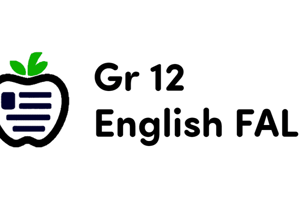Podcast
Questions and Answers
What is the correct structure of a tag question following a positive statement?
What is the correct structure of a tag question following a positive statement?
- Negative statement, positive tag
- Positive statement, negative tag (correct)
- Positive statement, positive tag
- Negative statement, negative tag
Which of the following is the appropriate tag for the statement: 'They are leaving, _____'?
Which of the following is the appropriate tag for the statement: 'They are leaving, _____'?
- aren't they? (correct)
- hasn't they?
- isn't they?
- don't they?
In which of these situations would you use a positive tag?
In which of these situations would you use a positive tag?
- When expressing surprise
- When the main clause is positive
- When seeking contradiction
- When the main clause is negative (correct)
Which of the following sentences uses a tag question correctly in present perfect tense?
Which of the following sentences uses a tag question correctly in present perfect tense?
Which sentence demonstrates the correct use of a tag question in the past simple tense?
Which sentence demonstrates the correct use of a tag question in the past simple tense?
Why might excessive use of tag questions be problematic in conversation?
Why might excessive use of tag questions be problematic in conversation?
In informal speech, how do tag questions primarily function?
In informal speech, how do tag questions primarily function?
What is the correct tag for the sentence: 'You have finished your homework, _____'?
What is the correct tag for the sentence: 'You have finished your homework, _____'?
What is the correct negation form for the following statement: 'He plays soccer, _____'?
What is the correct negation form for the following statement: 'He plays soccer, _____'?
Which structure is correct for a tag question following a statement in the past continuous tense?
Which structure is correct for a tag question following a statement in the past continuous tense?
When using an imperative statement, what is the appropriate tag to use?
When using an imperative statement, what is the appropriate tag to use?
Identify the error in the tag question: 'They will arrive soon, won't they not?'
Identify the error in the tag question: 'They will arrive soon, won't they not?'
What is the proper tag for the statement: 'Let's eat dinner, _____'?
What is the proper tag for the statement: 'Let's eat dinner, _____'?
Which of the following demonstrates the correct use of negation in a tag question?
Which of the following demonstrates the correct use of negation in a tag question?
What is the correct tag to follow the statement: 'You can solve this problem, _____'?
What is the correct tag to follow the statement: 'You can solve this problem, _____'?
Which tag is appropriate for the sentence: 'She was reading a book, _____'?
Which tag is appropriate for the sentence: 'She was reading a book, _____'?
Flashcards are hidden until you start studying
Study Notes
Structure Of Tag Questions
- A tag question consists of a statement followed by a short question.
- The tag is usually the auxiliary verb from the statement + the subject pronoun.
- Example: "You're coming to the party, aren't you?"
- If the statement is positive, the tag is negative, and vice versa.
- Example: "She doesn't like coffee, does she?"
Common Verb Tenses
- Present Simple: "He plays football, doesn't he?"
- Present Continuous: "They are studying, aren't they?"
- Past Simple: "You saw the movie, didn't you?"
- Future Simple: "We will go, won't we?"
- Present Perfect: "She has finished her work, hasn't she?"
Negation In Tag Questions
- Negation is formed by adding "not" to the auxiliary verb in the tag.
- In informal speech, contractions are often used.
- Example: "It's hot today, isn't it?" vs. "It is hot today, is it not?"
- In tag questions where the main clause is negative, the tag is positive.
- Example: "He doesn't play soccer, does he?"
Usage In Informal Speech
- Tag questions are common in spoken English for seeking confirmation.
- They promote engagement in conversation and can express assumptions.
- Often used in informal settings, making speech more interactive.
- Can imply politeness or soften a statement.
- Example: "Nice weather today, isn't it?"
- Overuse can lead to sounding uncertain or insecure.
Structure Of Tag Questions
- A tag question comprises a statement paired with a brief question following it.
- The tag consists of the auxiliary verb used in the statement plus a subject pronoun.
- Positive statements require negative tags, while negative statements require positive tags.
Common Verb Tenses
- Tag questions can vary based on the tense of the verb used:
- Present Simple: "He plays football, doesn't he?"
- Present Continuous: "They are studying, aren't they?"
- Past Simple: "You saw the movie, didn't you?"
- Future Simple: "We will go, won't we?"
- Present Perfect: "She has finished her work, hasn't she?"
Negation In Tag Questions
- Negation in tag questions is created by appending "not" to the auxiliary verb.
- Informal speech often employs contractions, such as "isn't" instead of "is it not."
- When the main clause is negative, the corresponding tag turns positive.
Usage In Informal Speech
- Tag questions serve as a tool for seeking confirmation in conversations.
- They facilitate engagement and express assumptions during discussions.
- Commonly used in casual settings to ensure interactive communication.
- Can convey politeness or soften statements, fostering a friendly tone.
- Excessive use may result in a perception of uncertainty or insecurity in the speaker.
Tag Questions Overview
- Tag questions are short questions added to the end of a statement to confirm information or seek agreement.
Common Verb Tenses in Tag Questions
-
Present Simple:
- Structure involves a positive statement followed by "do" or "does" for negation.
- Example: "You play soccer, don't you?"
-
Present Continuous:
- Uses "are" after the positive statement for negation.
- Example: "She is studying, isn't she?"
-
Past Simple:
- Based on positive statements combined with "did" for negation.
- Example: "They went to the party, didn't they?"
-
Past Continuous:
- Uses "was" or "were" for negation following the positive statement.
- Example: "He was sleeping, wasn't he?"
-
Present Perfect:
- Structure includes "has" or "have" for negation.
- Example: "You have finished, haven't you?"
-
Future Simple:
- Follows a positive statement using "will" for negation.
- Example: "She will come, won't she?"
Negation in Tag Questions
-
General Rule:
- An affirmative main clause requires a negative tag, and a negative clause requires an affirmative tag.
-
Usage of "not":
- Contraction "n't" is frequently used in tag questions.
- Example: "You can swim, can't you?"
-
Inverted Forms:
- The subject pronoun is reused in the tag question.
- Example: "He likes ice cream, doesn't he?"
-
Imperatives:
- For commands, use "will you" or "won't you" in the tag.
- Example: "Close the door, will you?"
-
Special Cases:
- The phrase "let's" pairs with the tag "shall we?"
- Example: "Let's go to the park, shall we?"
Studying That Suits You
Use AI to generate personalized quizzes and flashcards to suit your learning preferences.




